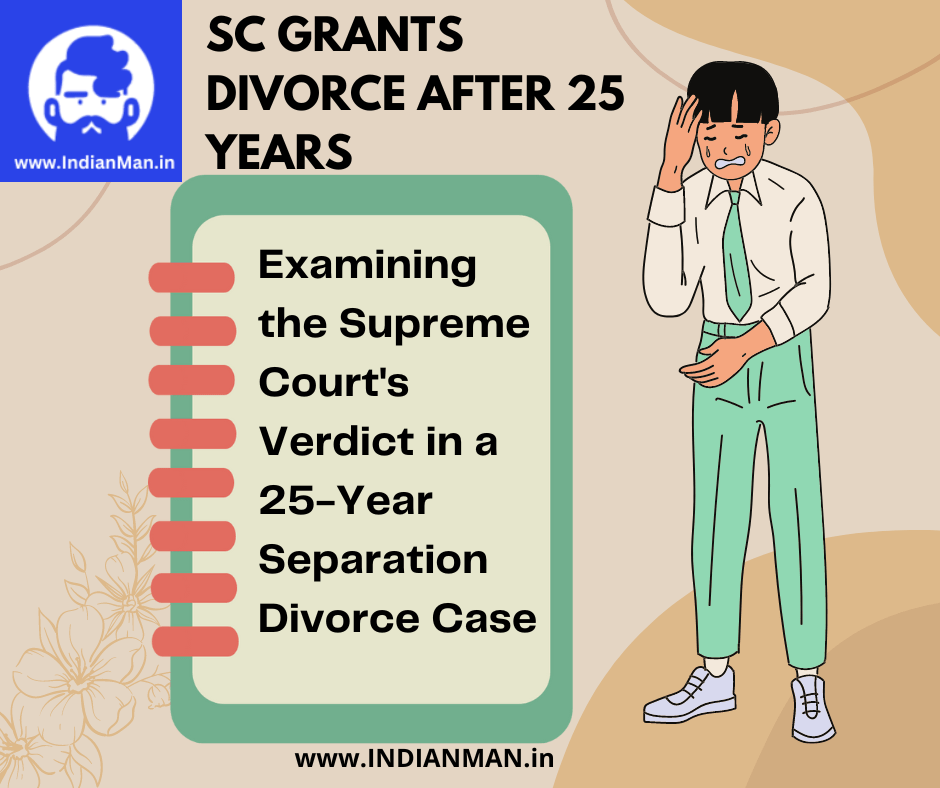Introduction
India’s divorce laws have often been the subject of debate, particularly when it comes to cases involving extended separations. In this article, we delve into a recent Supreme Court case where the apex court had to rule on a divorce request filed by a couple who had lived separately for 25 years. We will discuss the specifics of the case, the Court’s ruling, and the implications of such decisions on Indian society.
The Case’s Details
In this case, the couple in question, whose names have been withheld from media coverage, married in 1991 and began living apart in 1995. They have a son who is now an adult. The husband sought a divorce in 2012, alleging that his wife had deserted him. The wife, however, contested the petition, accusing her husband of cruelty.
Decisions by the Family Court and High Court
The Family Court dismissed the husband’s plea, stating that he failed to establish his wife’s desertion. The husband then appealed to the High Court, but the High Court affirmed the Family Court’s decision, denying the divorce due to insufficient evidence.
The Supreme Court’s Ruling
Upon the husband’s appeal to the Supreme Court, the Court noted that the couple had been living separately for 25 years and that their son had come of age during this time. The Court recognized the prolonged separation as a legitimate reason for granting the divorce, stating that it would be unrealistic to expect the couple to reconcile after such a long period apart.
Implications of the Verdict for Indian Society
The Supreme Court’s judgment in this case brings up crucial questions about the role of Indian courts in determining divorce petitions. The verdict acknowledges the significance of considering each case’s individual circumstances rather than adhering to strict interpretations of the law.
Recognizing the Importance of Unique Situations
The Court’s judgment emphasizes the need to take into account the specific circumstances of each case when ruling on divorce petitions. While legal guidelines are crucial, they should not be applied inflexibly, as each couple’s situation varies.
Tackling the Social Stigma Surrounding Divorce
The Court’s decision also addresses the social stigma associated with divorce in India. By granting a divorce in this case, the Supreme Court sends a message that the individuals’ well-being is more important than maintaining a dysfunctional marriage.
Reassessing Divorce Legislation
This case highlights the necessity of reevaluating India’s divorce laws. The legal system should develop clear guidelines for determining when a divorce is justified, taking into account each case’s unique circumstances. This entails recognizing both parties’ rights and ensuring that decisions prioritize the best interests of the husband and wife.
Conclusion: Striking a Balance between Personal Rights and Social Norms
The Supreme Court’s ruling in this case demonstrates the importance of striking a balance between personal rights and social norms. While maintaining the institution of marriage is essential, it should not compromise the well-being of the individuals involved.
As society progresses, our legal system must adapt accordingly. This includes reviewing divorce laws and ensuring they serve the best interests of all involved parties, regardless of gender or social standing.
Share Your Opinions and Encourage Discussion
We invite readers to share their thoughts on this subject in the comments section below. Do you concur with the Supreme Court’s ruling in this case? What changes do you believe are required to guarantee fairness in divorce proceedings? Let’s participate in a meaningful conversation and raise awareness by sharing this article with others.



